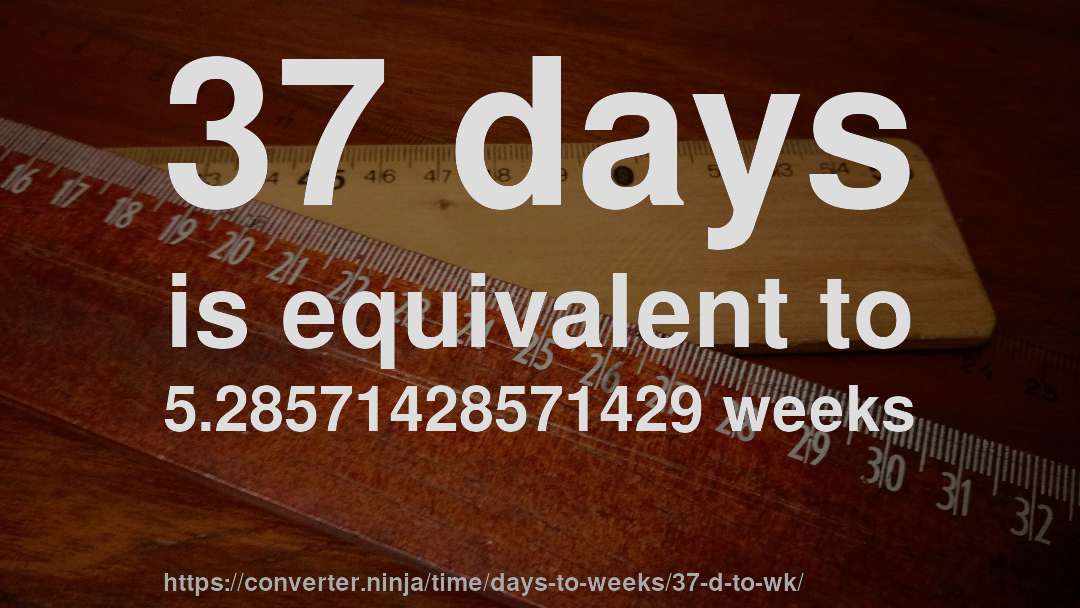
37 days is equivalent to 5.28571428571429 weeks.
We know (by definition) that: 1 d ≈ 0.14285714 wk
We can set up a proportion to solve for the number of weeks.
1 d 37 d ≈ 0.14285714 wk x wkNow, we cross multiply to solve for our unknown x:
x wk ≈ 37 d 1 d * 0.14285714 wk → x wk ≈ 5.285714179999999 wkConclusion: 37 d ≈ 5.285714179999999 wk
The inverse of the conversion factor is that 1 week is equal to 0.189189189189189 times 37 days.
It can also be expressed as: 37 days is equal to 1 0.189189189189189 weeks.
Approximation
An approximate numerical result would be: thirty-seven days is about five point two nine weeks, or alternatively, a week is about zero point one nine times thirty-seven days.
Units involved
This is how the units in this conversion are defined:
Days
"A day is a unit of time. In common usage, it is either an interval equal to 24 hours or daytime, the consecutive period of time during which the Sun is above the horizon. The period of time during which the Earth completes one rotation with respect to the Sun is called a solar day. Several definitions of this universal human concept are used according to context, need and convenience. In 1960, the second was redefined in terms of the orbital motion of the Earth, and was designated the SI base unit of time. The unit of measurement day, redefined in 1960 as 86 400 SI seconds and symbolized d, is not an SI unit, but is accepted for use with SI. A civil day is usually 86 400 seconds, plus or minus a possible leap second in Coordinated Universal Time (UTC), and occasionally plus or minus an hour in those locations that change from or to daylight saving time."
Weeks
"A week is a time unit equal to seven days. It is the standard time period used for cycles of rest days in most parts of the world, mostly alongside—although not strictly part of—the Gregorian calendar. The days of the week were named after the classical planets (derived from the astrological system of planetary hours) in the Roman era. In English, the names are Monday, Tuesday, Wednesday, Thursday, Friday, Saturday and Sunday."
[1] The precision is 15 significant digits (fourteen digits to the right of the decimal point).
Results may contain small errors due to the use of floating point arithmetic.ncG1vNJzZmibn6PDpr7Tnqlnppmjt6J706KknmeUlsa0edOoZLCdlaDAcH%2BWZptmrJ9ixKx7